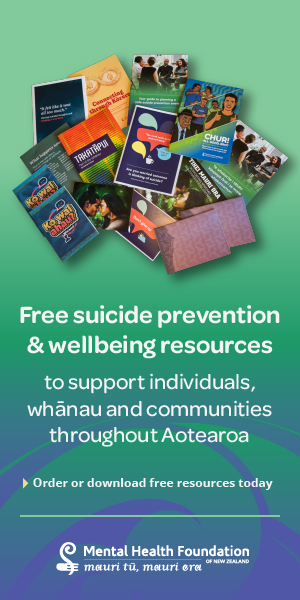Advocating for Māori ‘in my whakapapa’
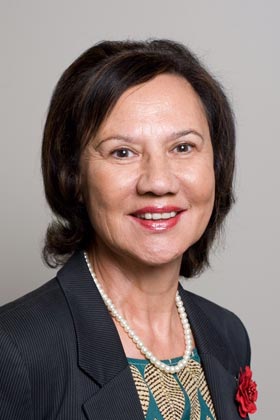
Auckland nurse Gwen Tepania-Palmer, Te Aupouri Ngāti Kahu, Ngāti Paoa, has cared about Māori health as long as she can remember.
“It’s in my whakapapa,” she said. “The most important thing is to make sure whatever we do in the health sector, it makes a positive difference. If you make a positive difference for Māori, you make a positive difference for everyone.”
Tepania-Palmer has become an Officer of the New Zealand Order of Merit. The honour was “not just for myself,” she said. “It’s for a lot of people who have crossed my path and mentored me.”
Co-designed health services “where everybody gets a look in” were the way forward, said Tepania-Palmer. Māori were entitled under te Tiriti to a partnership approach. The incoming Māori Health Authority was “another positive step” in that direction, ‘but I’ve lived long enough to know all things take time”.
Tepania-Palmer began her career in the 1970s as a psychopaedic nurse and was an early graduate of the bridging programme at the Auckland Technical Institute in the early ’80s. Moving nurse training from hospitals into schools “certainly lifted the bar of nursing education”, she says.
Tasked by the National Heart Foundation with leading a Māori response to heart disease, Tepania-Palmer created Te Hotu Manawa Māori (now Toi Tāngata), a Māori agency which draws on te ao Māori knowledge for healthy living.
In the late ’90s, she implemented a rheumatic fever programme in Northland, which led to the development of the Ngāti Hine Health Trust. A marae-based nutrition programme she suppported led to the establishment of Ngāti Porou Hauora, several marae-based GP clinics, a Māori nursing and midwifery service and a range of Māori health services in the Auckland region.
She also helped create Te Roopu Taurima, a Māori disability support service, and supported the development of Māori health boards in Te Taitokerau, Ngāti Whātua and Tainui to oversee delivery of health services in those tribal areas.
Over the years, she has worked with indigenous populations overseas, including Canada. While finding this work sad and overwhelming at times, “I just stayed focused and had incredibly good support systems”, she said. “I feel lucky and blessed – I have had all these opportunities nursing opened up for me in the world.”
Tepania-Palmer continues to work in governance, including on the board of the Ngāti Hine Health Trust.
Still ‘work to do’ on women’s rights
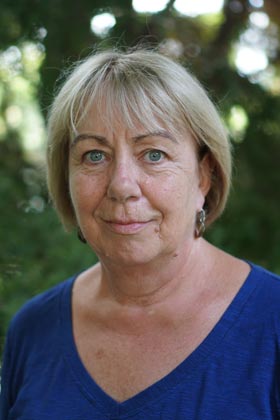
Former NZNO organiser Carol Beaumont became an Officer of the New Zealand Order of Merit for services to the union movement and women’s rights.
Beaumont – who has worked 35 years in the union movement, including at NZNO from 2014 to 2018 – said the recognition meant a lot for others in the union movement. “By their nature, they are collective organisations and there have been so many other active and passionate workers, determined to make a positive difference.”
It was relatively unusual for unionists to be honoured, so it was heartening to see the work of both herself and E Tū union delegate Lalopua Sanele included.
But there remained much work to do. “There is still massive inequality, both globally and in New Zealand, in terms of access to work and how much people are paid.”
Beaumont – who now works as a regional organising lead Asia/Pacific for the International Trade Union Confederation (ITUC) – said globally, women were far more likely to be in poverty than men, a gap “starkly” aggravated by the COVID-19 pandemic.
New Zealand was progressing on closing gender pay gaps, but must now consider “multiple layers of poverty and discrimination”, Beaumont said. An example was the pay gap between Pacific and Pākehā women.
Finalising Fair Pay agreements would help redress continuing fallout from the 1991 Employment Contracts Act, which drastically undermined the power of unions to represent workers. Unions must continue to rebuild their membership, 30 years on.
In her global role, Beaumont said it was both frustrating and inspiring to see what people were up against in the Asia-Pacific region. “I never fail to be moved and impressed by what I see people doing. There are often very challenging circumstances yet still people are fighting for their human rights, against the odds.”
Beaumont was general secretary of the New Zealand Council of Trade Unions from 2003 to 2008. She is a current board member of the National Council of Women.
Sixty years a nurse and still caring
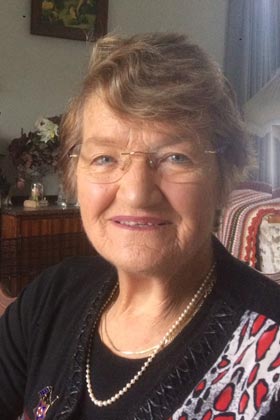
For a supposedly retired nurse, at nearly 79 Shirley Lanigan is extremely busy. Kai Tiaki managed to wrangle a few minutes before she went out to help with ‘flu vaccinations.
She still works with sexual assault survivors and has done a bit of school nursing too in the Hutt Valley since officially retiring eight years ago. More recently, a friend convinced her to do the COVID-19 vaccination training, and she has helped vaccinate hundreds of rest-home residents in Levin and Palmerston North.
Lanigan has been made a Member of the New Zealand Order of Merit for services to nursing, an honour she was able to share with her late husband Aidan, shortly before he died recently after 56 years of marriage.
Lanigan settled on nursing aged 11, after her mother was badly burned in hot pools near Taupō, requiring weeks of hospital care. Over a 60-year career, roles have included theatre, orthopaedics, surgery and emergency nursing. In 1968, she cared for survivors of the Wahine disaster, setting up a ward at Hutt Hospital. She also later set up a short-stay unit there, to ensure vulnerable elderly were not turned away in the night.
“The major part is the caring component – you do what you can.”
Lanigan started working with police in 2002 on a mobile blood-testing unit, before becoming a forensic nurse in 2004 – work she continues to this day, albeit part-time. Her work has meant sexual assault survivors could often be supported in the Hutt region rather than having to travel to Wellington.
In recent months, Lanigan has nursed her husband at home after he was diagnosed with terminal cancer.
While she remains active – she enjoys walking and going to the gym – she says she’s thinking about stepping down by Christmas – properly this time.
‘Coherent push’ needed for nurse leadership
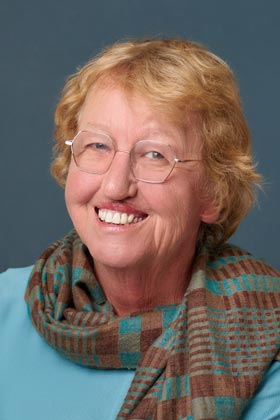
Auckland nurse Judy Kilpatrick – Dame Companion of the New Zealand Order of Merit for services to nursing – says she achieved nothing alone. “Nursing is such a team collaborative thing to do, I’ve always worked with fabulous people.”
Kilpatrick signed up for nursing on a “whim” in 1968, going on to become a powerful advocate for post-graduate nursing education and advanced nursing practice. She was a key driver of nurse practitioner (NP) programmes at Auckland and Massey Universities from 2016 and is most proud of this.
“The biggest thing for me is getting the NP model going – it has just taken so long, but people and nurses are now, finally, seeing the value of the NP role,” she said. As well as giving well-trained nurses the right to diagnose and prescribe, which allowed patient care to be delivered “on the spot”, having post-graduate expertise raised the profile and power of nurses.
“There’s been a massive change in nursing – we became professional whether we liked it or not, and that opened doors to a lot of things such as respect.”
While nursing was held in even higher esteem since COVID-19, work was needed to improve its influence. The current health reforms were a prime opportunity to see nurses at the front and centre of health-care delivery.
She said that visibility was nurses’ challenge. But the health service needed to change the way it delivered care in hospitals and communities – “nurses might be the best leader of the team”, she said. “We’ve got to remove the idea that nurses are not totally responsible for their practice – they are, not doctors… So utilise these nurses who are well-trained and highly competent.”
A collective approach from the profession was lacking. “There are some excellent leaders… But do I see a strong coherent push with nurses together? I would have to say I don’t.”
Kilpatrick co-founded the school of nursing at Auckland University of Technology in 1999, leading it from 2002 to 2017. It became one of the largest providers of post-graduate nursing courses in New Zealand, offering a national programme for Māori nurses in disease management and in rural nursing. In 2018, the department was recognised as 32nd in the top 50 nursing schools globally.
Kilpatrick also chaired the Nursing Council from 1996-2002, during which time the council began developing its regulatory framework and negotiating legislative changes to allow NPs to practise in New Zealand.
Kilpatrick retired in 2020 after 47 years.



